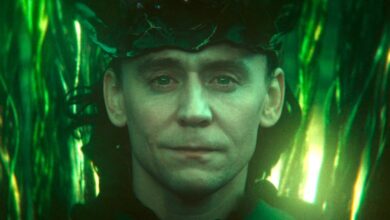Black Mirror Season 6 Review Episode Wise: Creativity and Social Criticism Remain The Pillars
Cast: Monica Dolan, Aaron Paul, Anjana Vasan, Kate Mara, Josh Hartnett, Ben Barnes, Salma Hayek, Zazie Beetz, Rory Culkin, Annie Murphy, Michael Cera, John Hannah, Rob Delaney, Himesh Patel
Director: Toby Haynes, Anne Sewitsky, Uta Briesewitz, John Crowley
Streaming Platform: Netflix
Filmyhype.com Ratings: 3.5/5 (three and a half stars)
Black Mirror Season 6 has just been released on Netflix with five episodes that have dealt with different themes from nuclear wars to life in space, from human cloning with “replicas” to the law on the acquisition of personal data, all with a very darker and more horror than usual. But among all the new episodes of Black Mirror 6 which are the most beautiful? Between Joan is Awful, Loch Henry, Beyond the Sea, Mazey Day, and Demon 79 which episodes of Black Mirror 6 are the best to catch up on Netflix as soon as possible? Here is our ranking.
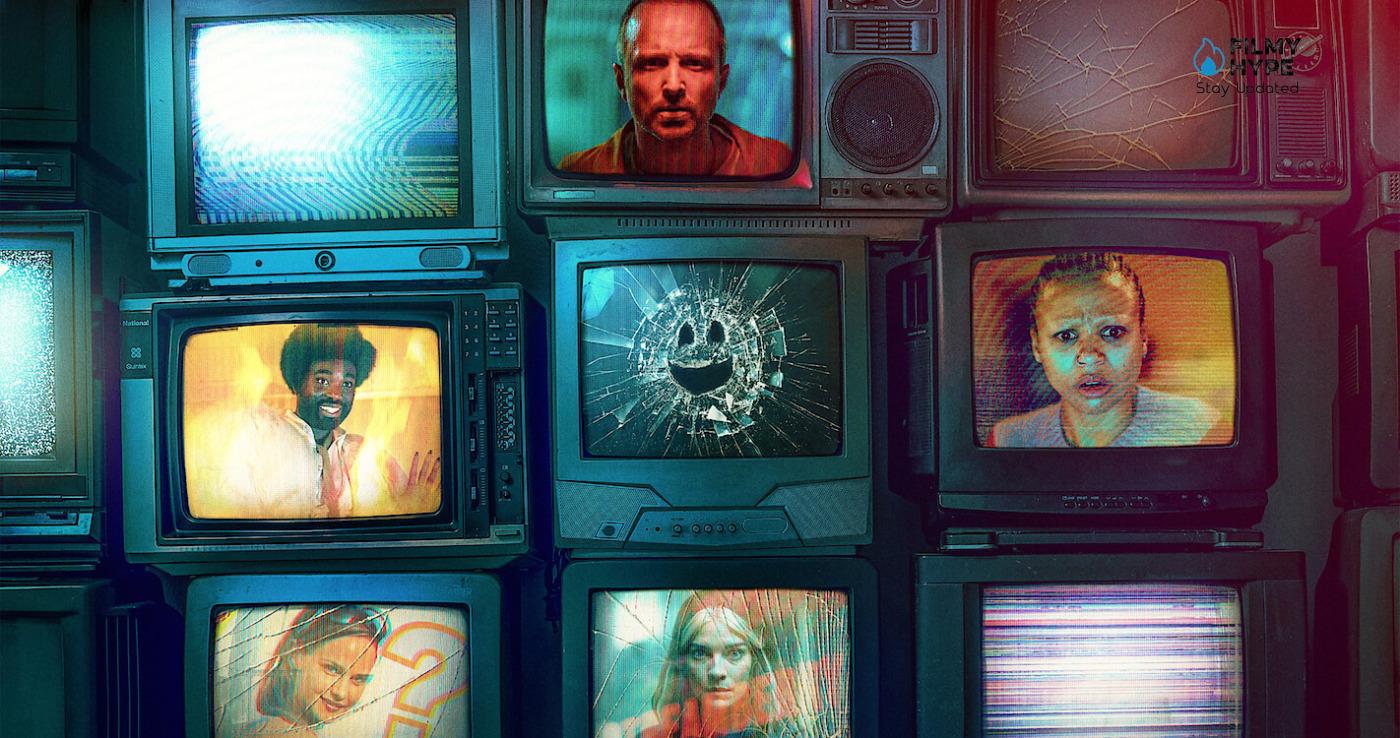
Expectations for Black Mirror Season 6 were inevitably, fueled by the great success of its first seasons and the lukewarm reception that the previous narrative arc received. It is difficult, if not impossible, not to think of the old glories of a product that has shaped an entire branch of contemporary entertainment, demonstrating how simple it is to transport viewers into worlds, also immensely detailed, with very little, few building reflections on it that easily touch the reality of the beholder. Available on Netflix from June 15, 2023, the sixth season immediately made the situation clear, consisting of episodes that want to look at the conceptual past of the series, without ever being able to match it in terms of genius and wonder.
Black Mirror Season 6 Review: Episode 1-6
The new episodes released, however, allow us to reflect on the direction this TV series is taking. The technological identity of the past is quite distant, as are some very raw inventions both in direct and conceptual terms; but the critical imprint remains, flanked by certain findings not to be underestimated at all in terms of yield and impact (the episodes Joan is terrible and Beyond The Sea is a perfect example of this, presenting two stories that know how to hold their breath until bottom). The idea that different genres can be exploited to indirectly address some contemporary hypocrisies is not entirely to be thrown away, even if in many cases we risk falling into stereotypes that would have been better avoided.
From a formal point of view, there isn’t much to say, also because each episode is characterized by a stylistic imprint that distinguishes it from all the others, accompanied by the interpretations of some well-known Hollywood faces (Salma Hayek, Michael Cera, Aaron Paul…), involved in roles that manage to work great with the writing of the characters in the play. Summing up what we have seen, we can say that Black Mirror 6 is a very different product from the one that inspired its initial glory with the general public. The choices that the show has made along the way have broadened the narrative reach by fielding a slew of experiments that, in the right hands, will certainly find something to tell, even if for the moment not at all surprising as in the past.
Joan Is Awful
The first place in the standings is all for the first episode of Black Mirror Season 6, Joan is Awful, the most ironic, funny, captivating, and innovative of all. The one told by Joan is Awful is a story that unites all of us, a reflection on the sharing of personal data and privacy, a push to make us understand how much every day we allow devices to take over our lives and assume their power. With a brilliant performance by Salma Hayeck and Annie Murphy, Joan is Awful tells the story of a woman whose life is adapted as a TV series by a streaming platform without her knowledge.
Of the five new episodes, it’s the most classic, the one that best fits into the Black Mirror canon. A “meta” episode, in which Netflix plays along and jokes about itself, allowing Brooker to use the graphics and sounds of its interface, creating a new platform, Stream berry, on which a supercomputer loads a TV series inspired by the life of one of its subscribers. It is also the most ironic episode, in which dialogues and interpretations (Annie Murphy and Salma Hayek above all) manage to strike the balance between the grotesque and the parody of themselves. The only flaw: the ending was a bit too rushed.

The first episode of Black Mirror should be summed up like this. Open Netflix, search for Black Mirror Season 6, and play. “Joan is awful” Reads the title: get to Know Joan, her Husband, and her work environment. It feels like a classic catalog drama series. Then Joan sits on the sofa, turns on the TV, “Tudum” and Streamberry opens a Netflix alter-ego. There’s a new series on Netflix about Joan, and it’s called Joan in Awful. But we are watching an episode of the same name. Are we Joan? Is Joan the one on our screen or hers? The short circuit has started: welcome back Black Mirror.
This meta-Netflix episode, between Truman Show and Enemy (Villeneuve’s film based on Saramago’s novel The Duplicate Man), is the extreme outcome of a sentence: “You accepted the conditions“. In the era of the proliferation of stories, in which everything becomes accountable and to be recounted, a streaming platform exploits the neuroses of the subjects, their fragility, and fears, to “surge their involvement“. You don’t need space technology or science fiction: reality is enough to be disturbing, one for all, like the horoscope. And no one can be as pungent as Black Mirror in slamming it in our faces.
Loch Henry
Among the less convincing episodes of Black Mirror Season 6, there is undoubtedly Lock Henry, a true crime that recalls, in some ways, the story of Jeffrey Dahmer told with the Ryan Murphy series on Netflix and which is not very exciting. The story is that of a couple who go to a small town in Scotland to shoot a documentary on nature but will become passionate about the story of a local in the city linked to mysterious and shocking events from the past. The cast includes John Hannah, Monica Dolan, Samuel Blenkin, Myha’la Herrold, and Daniel Portman.
The press is that of thriller/horror, complete with a final twist that adds some thrills. But we are in the world of Black Mirror: here, therefore, the story of the making of a true crime-style documentary becomes an unprecedented look at this same genre. It’s as if Brooker wanted to remind us that behind all these stories of murder and serial killers that we see there are victims, but also the families who survived them. But often, hungry for exclusives and unpublished documents, we forget about them.
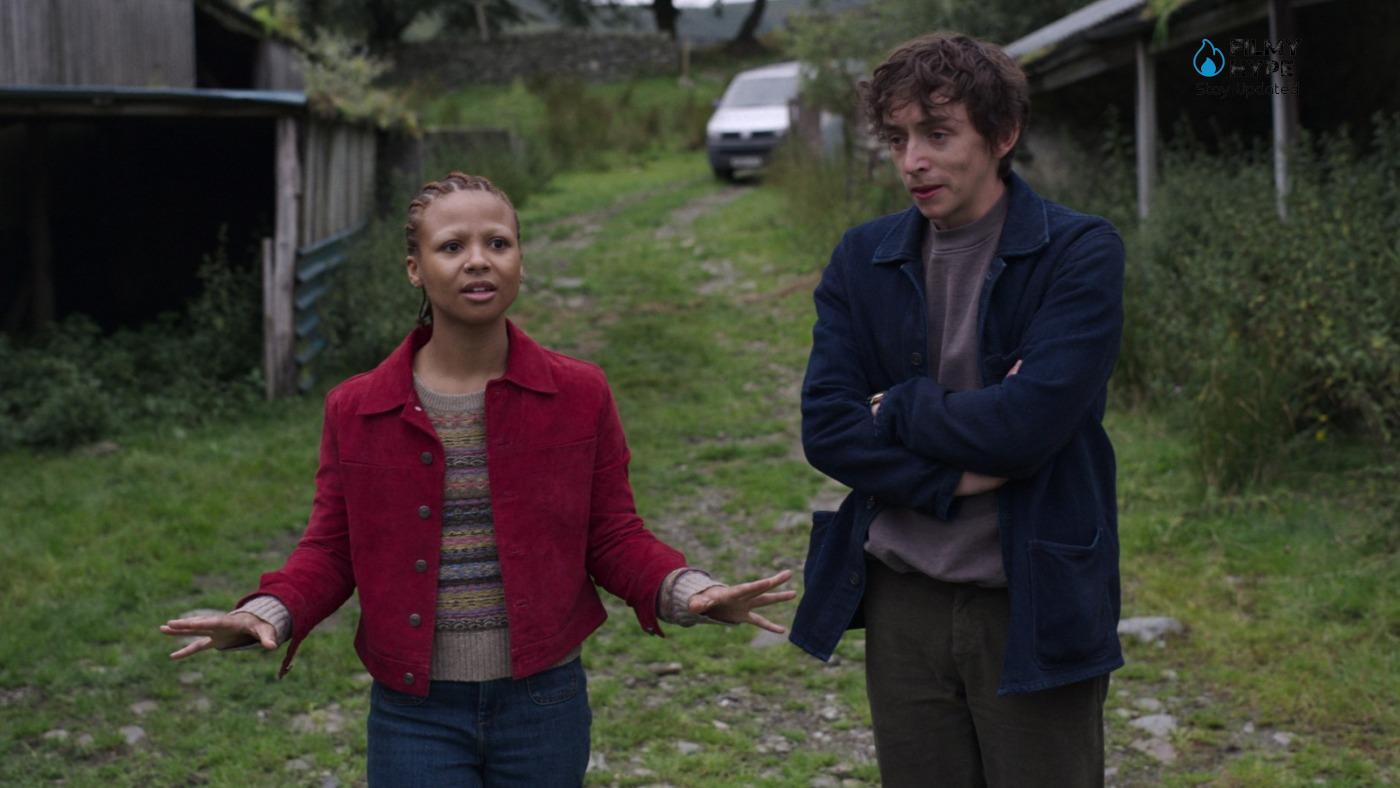
Again, there is the theme of a cinematographic product, again the episode begins as a very normal drama film with a setting that is not at all sci-fi or surreal. And again Streamberry. The first two episodes are linked by the same streaming platform on which they focus: a pseudo-Netflix that touches us closely. Like Joan is awful, it was about the abuse of storytelling, which becomes so intrusive as to be terrifying; so, Loch Henry reminds us that there are often things in our lives that we wish were not recorded. In order not to see them again, as Jordan Peele’s Nope teaches (speaking of meta cinema).
And instead, the protagonist of the episode will win a BAFTA for that documentary, despite recording the tragedy of his own family: there would be nothing to celebrate, and it is precisely here that Black Mirror returns to turn on a light bulb. What and how much of ourselves are we willing to sell for entertainment? From the form of technology, Black Mirror has moved on to content, that’s why it’s a yes.
Beyond The Sea
In second place among the most beautiful episodes, even if this episode suffers from the excessive length, is Beyond the Sea, the story of two men who live in space and whose consciousness is connected to a humanoid of their appearance who lives on earth together with their families. A futuristic story that acquires increasingly dark tones as it goes on, but which makes us reflect a lot on the theme of fidelity, of what makes human beings human, whether the body or the conscience, and how little it takes to transform a good man into a criminal.
The couple Aaron Paul/Josh Hartnett function in this story set in an alternate 1969, in which two astronauts can embark on a six-year mission in space while maintaining contact with families thanks to avatars which to “download” when necessary. But regardless of the plot, at the center of the episode, there is human piety on the one hand and, on the other, the selfishness that can also arise from a good deed. Because Black Mirror never thinks much of humans.
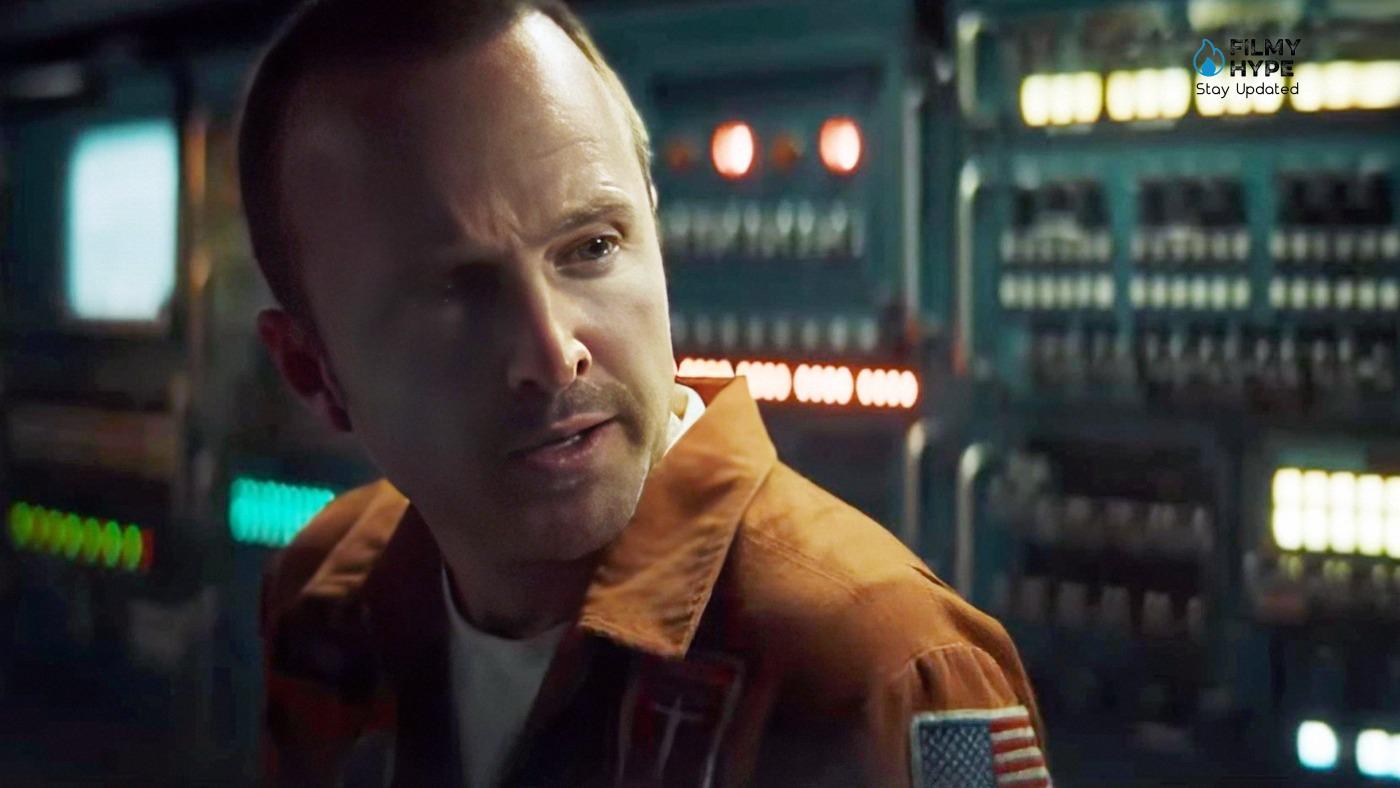
What does it mean to sell our life and make it one product among many others? Probably being able to offer a colleague of ours a “link” to enter our daily lives and live a few hours in our body. An existence that becomes a dress that can be lent, and the real increasingly difficult to recognize in the sea of unreality and the virtual. The focus of the season is confirmed by that blurred border between real and non, between reality and simulation: in this episode both with the more elaborate technologies of the Black Mirror of the origins and with a continuous reference to painting and drawing. After all, both art and technology try to reproduce a reality that is not real: man’s task is not to lose control of it, this is the warning of the series.
A Buzz Lightyear-style Aaron Paul embodies in this central episode the inversion of the sign of Black Mirror Season 6: no longer an excess of extreme technology, within which to search for life; but a lot of life made up of emotions and feelings, in which technology becomes the drug of the Greeks (as much poison as opportunity). And although it seems like an episode detached from the others, whether you want the setting or the more sci-fi element that comes back from the first seasons and then is missing in the other episodes of the latter there is a small aspect to grasp. What are cinema and entertainment if not playing in someone else’s shoes? The red thread doesn’t break, we’re always there, so much to confuse dream with reality.
Mazey Day
Among the worst episodes of Black Mirror Season 6, there is also Mazey Day, an episode that if it hadn’t been for its splatter/fantasy ending could have competed to become one of the most interesting. In this case, the theme is that of journalism which becomes profiteering and loses all forms of moral ethics. The story is that of a very young star who is followed and hounded by the paparazzi for running away after causing an accident. The cast includes Clara Rugaard, Danny Ramirez, and Zazie Beetz.
The weakest of the five episodes. Set in 2006, it is intended to be an allegory of each person’s right to freedom and to be helped and of the opportunism that arises when faced with an advantageous economic proposal. And the paparazzi category doesn’t come out well at all. But in general, it is the whole episode that leaves us a little indifferent, with a story that does have its plot twist, but which has come out of time compared to other TV series that have proposed something similar.
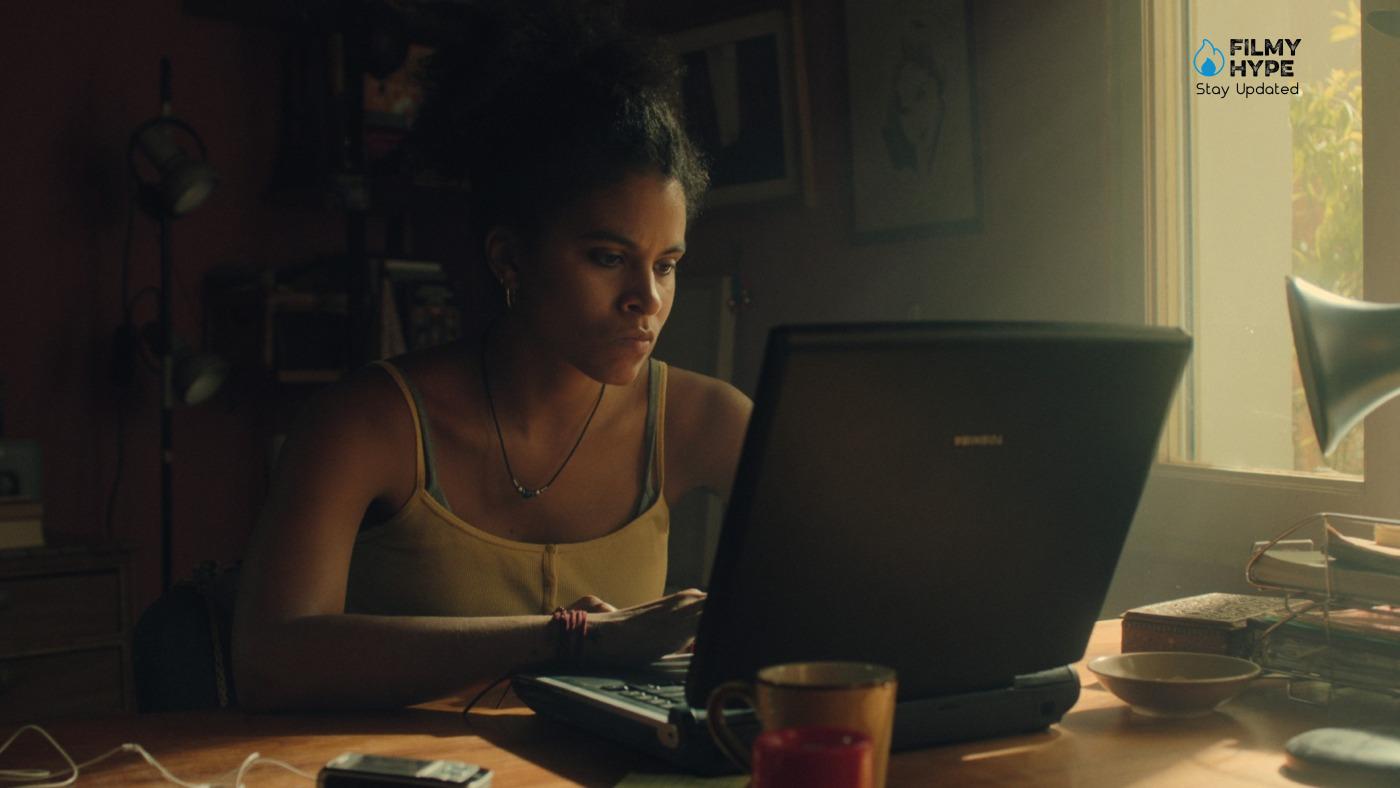
In this fourth episode, what remains of the disturbing and pungent element that we have all always associated with Black Mirror from the first moment? The obsessive, compulsive, and unscrupulous flashes of cameras. The story is about a Hollywood star, chased by journalists for a sensational scoop: it is held together with all the other episodes once again by the end of privacy. Journalism and the paparazzi are not topics of technological drift and if we continue to ask Black Mirror this, it seems to us a disappointing episode. If, however, from the first three we have understood what this season wants to tell us, about a man and the weaknesses that made him a slave of technology, then we understand why technology can disappear.
Demon 79
And, in last place, there is Demon 79, the episode that tells the story of a saleswoman who will have to commit monstrous things to avoid a disaster. In the cast of this episode are Paapa Essiedu, Anjana Vasan, Katherine Rose Morley, and David Shields. Not convincing is, again, an excessive length and a plot with horror tones that delves little into the psychology of the characters and ends up recounting violence in an overly simplistic way showing how easy it is to switch to the side of evil.
An episode that is not Black Mirror, so much so that from the beginning it is presented as the work of “Red Mirror”. It could be a pilot or a spin-off of the series, at least this is the idea we have of this story in which the human instinct is no longer tickled by new and modern devices, but by something that has its origins far away. Anjana Vasan and Paapa Essiedu, the two protagonists, keep glued to the screen.
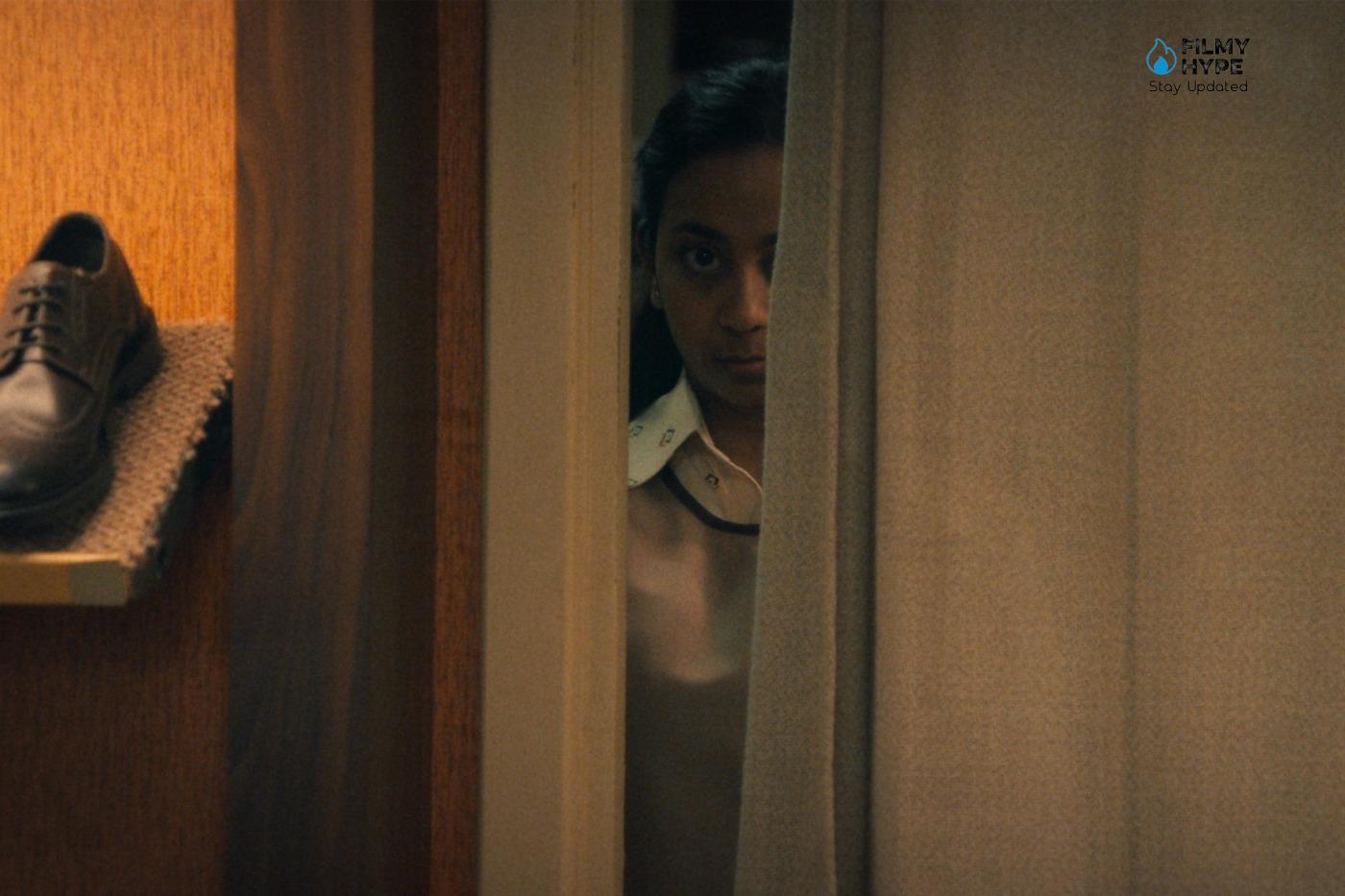
A talisman is at the center of the latest episode, which concerns the threat of an apocalypse and is dominated by the figure of an anti-Jimical Cricket who trains the protagonist to kill. A genie of the lamp appears for a specific reason, that answers a question: who made you mad? The macabre Cinderella of this episode must prevent midnight before having committed five murders, this is what the demon summoned by the talisman tells her. It seems a sort of catalyst for repressed impulses: the very ones that often lead to the disastrous results of technology, the fruit of human frustration.
The episode least liked by the most is the key to reading the entire season. The protagonist says to the demon: “You like all of this, you don’t get your hands dirty, you just watch pure entertainment. And if the Apocalypse comes you will have a fun ending”. The demon, dressed in white and with curly hair, is exactly the object of criticism in Black Mirror Season 6: the desire to make a show and the figures who boast and gain from this show to the detriment of those who make a show at any cost.
Black Mirror Season 6 Review: The Last Words
Black Mirror 6 is a TV series that has taken a clear path with this sixth season, even if the general impact remains quite generic, especially looking at the original identity of this product. The fusion between creativity and social criticism remains intact, framed by shades and ideas that sometimes don’t surprise as they should, drawing attention to unpublished scores that aim to disturb using completely unexpected means. The pride of the new episodes is the interpretations of the actors involved, and the formal attention in trying to introduce viewers to the plots on the small screen.







